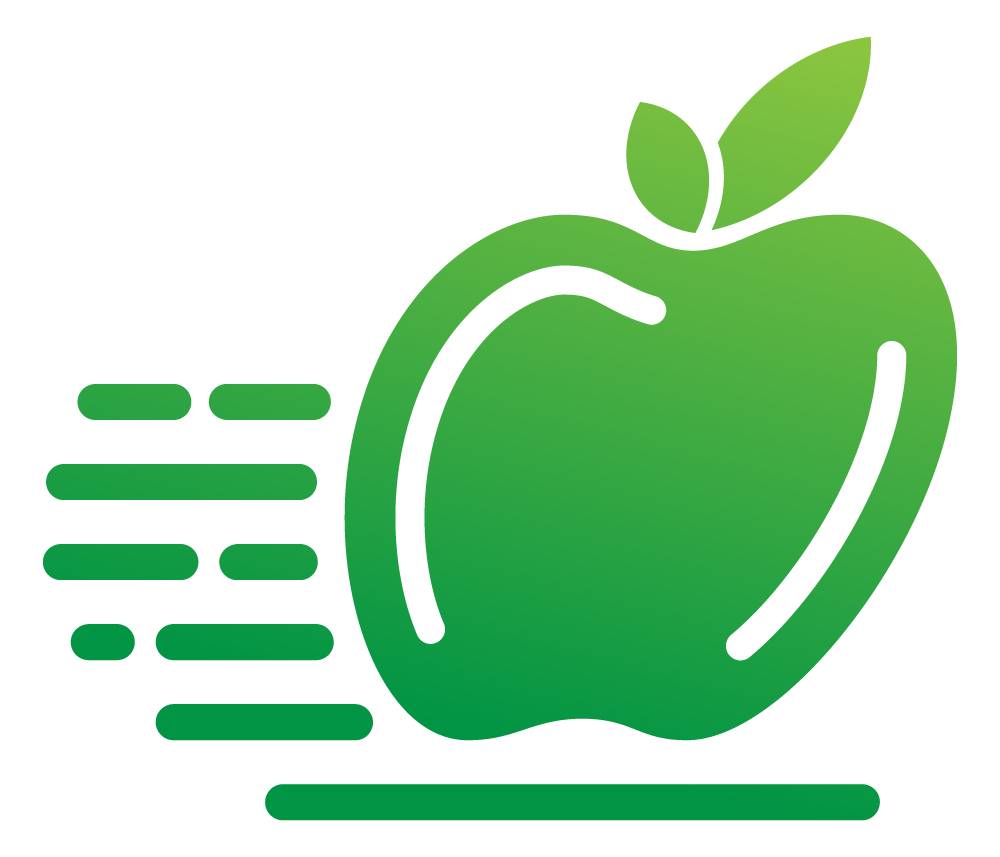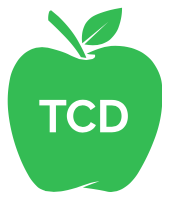Whole Food plant-based: cheap, easy and truly healthy
If you’ve been following along, you know I’ve been doing a few health-related “challenges”, the “90% time in range” challenge and the “eating for less than 5 euros a day” one.
I won’t go over their details, but they’ve surely been a success: I am still averaging ideal blood glucose levels 92% of the time, eating well, and eating for an incredibly low amount of money. Sometimes I even manage to properly fill up the belly for only 2€!
I am not keeping a formal track of those experiments on the blog, but I am constantly observing myself closely to detect any notable changes and phenomena in my body and health. I have so far gathered a few mental notes that I think are worth sharing, which are also a good way of rounding up and summarising the outcomes of my experiments with a whole food plant based diet that is high in carbohydrates and lower in fats.
There are also many myths around healthy and plant-based eating, such as that it is expensive and too complicated for the average person. This post is a way to address these as well. Based on my own experience, I will show that eating whole foods and plant-based
is not expensive, unless you want it to be.
is not complicated, unless you want it to be.
produces drastic improvements in many areas of our health that translate in a series of improvements in our daily life. Tangible stuff that should be a concern for everyone, diabetic or not.
Both diabetics and non diabetics can find valuable insights from my experience. If you are like me, you just want to save some money, live better and be a bit happier. Let me show you some tools that are helping me
A plant based diet is not expensive
I put this first because money is a concern for most people. Healthy eating can be done in two ways:
hunting for expensive products labelled as “bio”, “organic”, “healthy” and the likes. The price of these products is typically far, far higher than the average. Still, we purchase them because good marketing tricks us into thinking that a product is not healthy unless it has the fancy label or belongs to this or that popular brand;
relying on simple foods that are close to their natural state, the way you would find them in nature. A bag of potatoes, carrots, apples, some beans. These can be bought in bulk for a low price, but their packaging is often less appealing.
If this distinction sounds trivial, it isn’t. Before we know it, we’re not looking for an apple, but for the organic apple. We hunt for a plant-based source of protein, but we don’t look for lentils, we seek the plant-based burger or whatever else meat substitute that has “high-protein” written in bold.
You get the idea. You can also start to picture how the receipt will look like if you default on the fancy option instead of the simpler one.
A 4 euros plant based burger per meal, instead of a 2 euros bag of lentils that will last you one week. Let’s do some math:
Plant based burger (eaten 3 a week): 4euros x 3serving = 12 euros/week,
1kg of dried lentils (it lasts for one week in my case): 2euros x 1serving = 2 euros/week.
Now scale this on a monthly basis, (or even a yearly basis)
Plant based burger = 12 euros/week x 4weeks = 48 euros/month,
1kg of dried lentils (it lasts for one week in my case): 2euros x 1serving = 2 euros/week x 4 weeks = 8 euros/month.
And we’re just considering a supposedly healthy plant-based meat substitute (which is not healthy at all, strictly speaking: these are highly processed foods. Lentils? They’re just lentils. And they’re cheap).
Do the same exercise for how you choose your vegetables and other package foods. Now you start to see that you have two options, one of which makes you poor. Choose the other one.
Don’t become obsessed with labels and trendy products. Stick to the basics: fruits, potatoes, lentils, beans, oats, chickpeas, rice are all excellent sources of energy. You complete the plate with some vegetables and you’ve got your 2€, healthy, clean fulfilling and cheap meal.
A plant based meal can be very simple (and nutritious!)
Another common myth is that a commitment to healthy eating requires an incredible amount of time, complex recipes and profound planning of each and every meal.
There’s value and fun in spending a few hours in the kitchen to assemble an elaborated meal from time to time. But personally, 99% of the time my meal is ready in around 10 minutes.
It has often been the case that I have been invited for a meal with friends or family, and found the host extremely busy researching vegan recipes to meet my vegan tastebuds. Although this is an act of extreme kindness and care, people tend to forget that a bowl of rice with some vegetables is a vegan dish. Or potatoes and greens is a vegan dish. Or a mix of vegetables and some legumes is a vegan dish.
These are the very same foods they would probably eat anyway, yet for some reason the presence of the ‘vegan’ guest turns the menu into an overcomplicated nightmare.
If you are scared by the apparent complications of eating plant-based, and you have no cooking skills, remember this: some whole wheat pasta with tomato sauce is a vegan dish (and it’s cheap!).
Whole food plant-based is healthy…for real!
Defaulting to simple, whole plant-based foods as the core of your nutrition is a genuine love statement to your body, your mind and your long term health.
You may not be diabetic, but the spikes in blood glucose, insulin, and the stressers that tax your body occur nonetheless. You just don’t see them on a blood glucose monitor but that doesn’t mean they don’t mine your health on the background.
As a matter of fact, that is actually how you get type 2 diabetes: nothing genetic, just a bad diet and lifestyle.
Since I changed my diet to prioritise these foods 90% of the time, my blood glucose has been in range 90% of the time, without spikes or rollercoaster-like phenomena.
Why should this concern a person without diabetes? Well, just as for diabetics, processed foods spike blood glucose, and regularly consuming these foods keeps its average levels high. And ‘…after many years, too much sugar in the blood can cause problems in your body. It can harm your eyes, 'kidneys, nerves, skin, heart, and blood vessels.’
You’d probably want to avoid these altogether. For me, eating whole food plant-based is doing the trick. And it looks like I am just one in a very large group of happy people.
Why should you eat a whole food plant based diet? eating energy and focus
As a type 1 diabetic, I have the “privilege” of seeing the impact of what I eat and how I live as a crude number on my device. Some call it a curse, I see it as a privilege.
You could still feel untouched by these arguments because “Yeah ok, but I am not a diabetic, this insulin stuff is not my concern”. I understand, insulin and blood glucose monitoring is not your day-to-day concern. The next couple of lines, however, may spark your interest.
Food is fuel. Good fuel propels the machine, bad fuel impairs its functioning. Agreed, we’re humans and not machines (for now!), but the “garbage in garbage out” principle still applies. There are several unseen benefits I have experienced since I have switched to a cleaner version of a plant based diet - once again, one higher in whole carbohydrates and that simply ignores processed foods.
Such as?
Well, I know from my blood glucose monitor that eating processed carbs (white bread, pasta, or oily stuff at a restaurant) spikes my blood glucose and forces me to inject much more insulin. I see that in real time. But ok, that’s only for Giovanni the diabetic.
Something everyone may want to know is that these spikes can directly affect work or study performance, to name a couple: the infamous post-lunch “afternoon slump” that everyone fears is the mere consequence of a sudden increase in glucose levels in the blood, which cause the body to release a huge chunk of insulin to contain it, which causes a steep drop in blood glucose. This rapid up-and-down produces the slump, and the loss of focus that is essential for mental work.
None of the above has occurred since I started eating whole foods plant based by default. Even large portions of fruits, potatoes or legumes maintain my blood stay steady. Consequently my mental focus and my energies overall are steadier throughout the day, and for longer bouts. I run, lift, study, work and be a good person for the people around me much, much effortlessly than ever before.
Feeling good, holistically
But there’s one last point: my mood has never been better. Literally, I have never felt better: holistically, my health has reached an untouched level.
Besides the aspect directly related to diabetes, I experience a better mood, a more positive attitude in my day-to-day, more confidence and I feel I am recovering my energies much more efficiently from one day to the other.
I also seem to get more stuff done than before, as the completion rate of my todo list has increased quite substantially lately! I can’t hide that this compounds the self-confidence further.
Correlation is not causation, you may say, and as a data person I could not agree more.
But there’s scientific evidence to support that eating, sleep/recovery, mood and performance are all closely related.
In fact, I am not at all surprised that all of this - the increase in the quality and quantity of focus, in mental clarity, in mood, in recovery - has been happening since I decided that I would default to eating “clean” plant based food, instead of “garbage” plant based food.
And to me, clean means simple. Simple means whole and natural. Which also happens to be cheap!
What I am trying to say, Bob, is that the quality of your health and life can improve drastically just by auditing what you put in your plate. You’ll find that you can save money, improve your health and perhaps add a few quality years to your lifespan.
Quit a bang for your buck, this whole food plant based thing, isn’t it?
Deep Dive
Clean eating has improved my mood dramatically. And my life overall, as a consequence. If you have some time to invest in learning, you should consider listening to this episode of the Huberman Lab Podcast.

